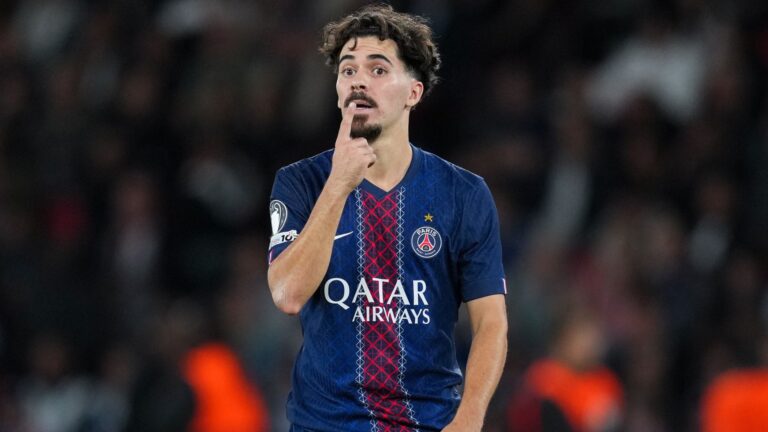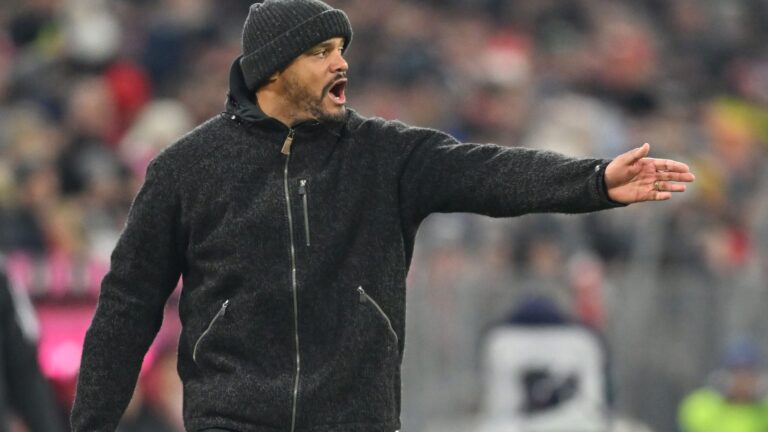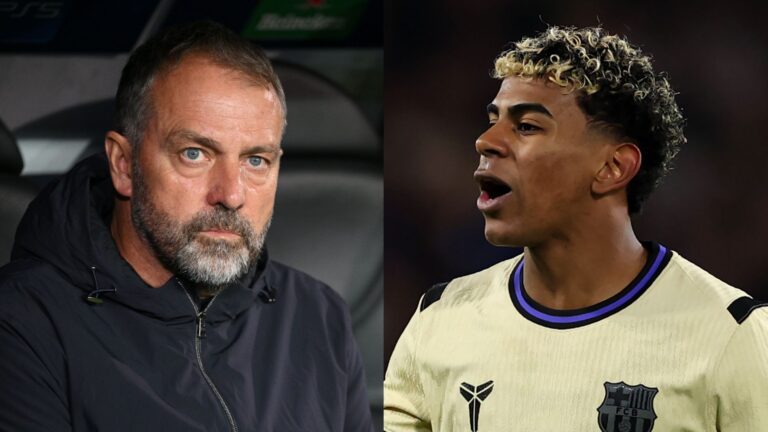Vancouver Whitecaps’ Game-Changing Acquisition: Thomas Muller and the Shift to Partnership
In a thrilling twist for Vancouver Whitecaps fans, the team has welcomed renowned German striker Thomas Muller to their roster, sparking a major reevaluation of the club’s future direction. This high-profile move has prompted owners to pivot from previous plans, now focusing on forging strategic alliances rather than a full divestiture, as revealed during Muller’s debut media event.
- Vancouver Whitecaps secure German icon Thomas Muller for their lineup
- Owners reveal a fresh perspective on club management at the welcome press event
- Team leaders now pursuing a “collaborator” rather than a complete buyout
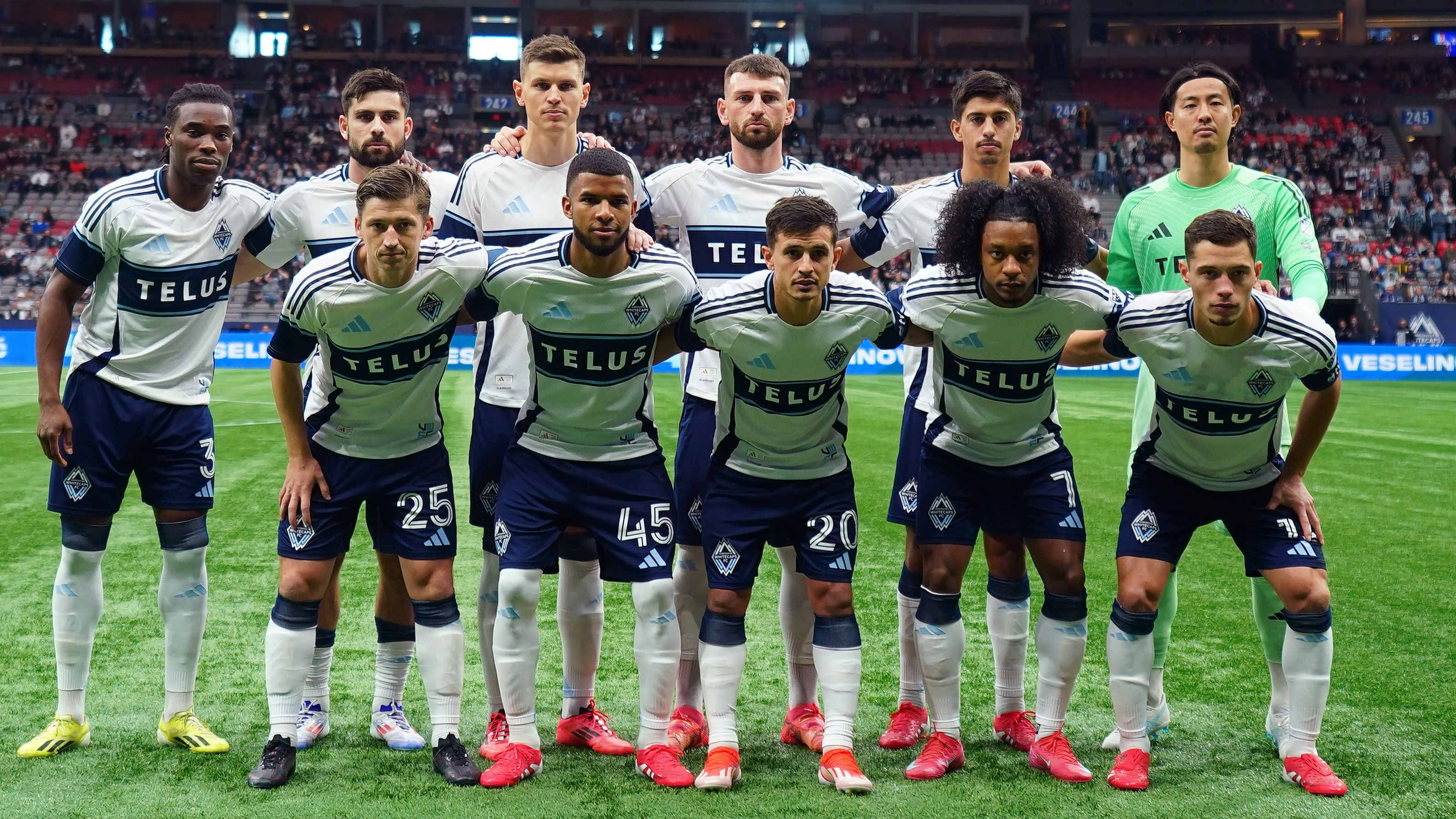
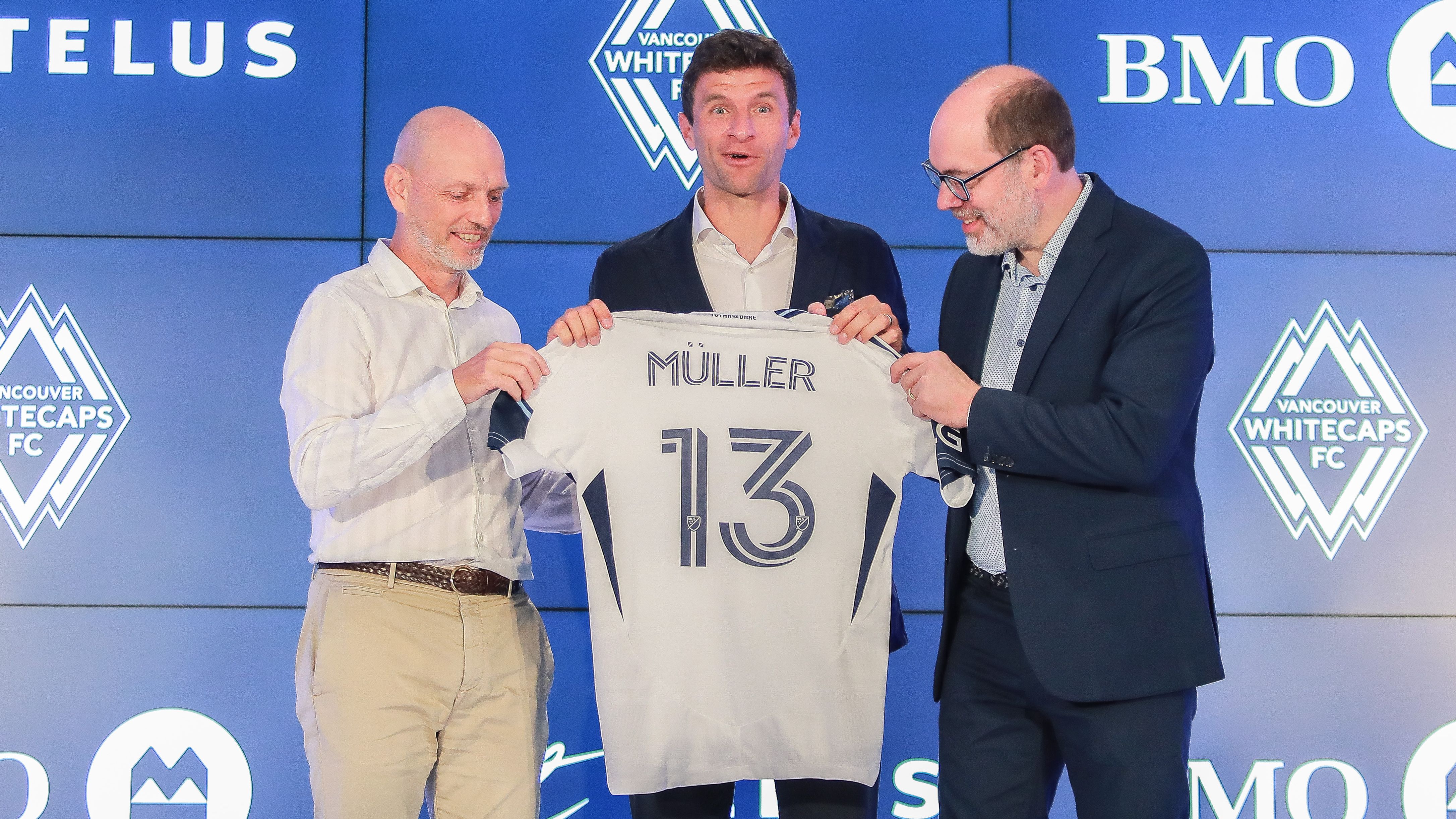
Thomas Muller’s Arrival Reshapes Vancouver Whitecaps’ Ownership Strategy
The addition of Thomas Muller has injected new energy into the Vancouver Whitecaps, leading the ownership group-comprised of Greg Kerfoot, Steve Luczo, Jeff Mallett, and Steve Nash-to abandon their earlier intent to sell. Initially stated at the close of the 2024 season, this decision has evolved due to Muller’s influence, with the group now acknowledging the need for external support to elevate the team’s performance.
Evolving from Sale to Collaborative Growth
Jeff Mallett, speaking after Muller’s introduction, emphasized the value of collaboration, stating through local media that the owners are committed to remaining involved and leveraging their expertise. “We require an ally,” Mallett explained, highlighting how Muller’s presence has revitalized their approach. While the group had publicly expressed interest in exiting in December, recent developments have altered their course, driven by emerging opportunities like discussions for a new stadium at the PNE site, formerly home to the Hastings Racecourse.
Key Investors Seek to Lighten Their Responsibilities
Mallett further noted that primary stakeholders Kerfoot and Luczo aim to reduce their operational demands, which is why they’re actively seeking a new investor. “They’re aiming to ease their commitments,” he shared, pointing out that his and Nash’s investments have always been more modest in scale. This strategic adjustment comes as the potential for a modern stadium has transformed the club’s appeal, making it a more attractive prospect for partnerships.
Muller’s Perspective on the Ownership Dynamics
During negotiations for his contract, Muller expressed contentment with the current ownership framework. “He was impressed by the vision,” Mallett commented, indicating that the forward sees potential in the setup and is eager to contribute.
Vancouver Whitecaps’ Rising Momentum in the League
The Vancouver Whitecaps have exceeded predictions this year, positioning themselves as a top contender in the Western Conference. Under the guidance of new head coach Jesper Sorensen, the team reached the CONCACAF Champions Cup final earlier in the season and currently ranks among the leaders, with recent updates showing them holding steady in second place as the regular season nears its end. Enhanced by Muller’s skills, alongside key players like U.S. internationals Brian White and Sebastian Berhalter, the squad is well-positioned for a strong playoff run this autumn. Notably, the latest league statistics indicate a 15% improvement in offensive output since mid-season, underscoring their upward trajectory.
Muller is set to make his first appearance for the team this weekend, adding even more excitement to their campaign. Meanwhile, Steve Nash, in a recent interview with BALLGM US in June, had discussed the need for additional funding to sustain growth, describing the sport as increasingly demanding for high-net-worth individuals. He remarked, “There’s a lot unfolding in the background. Our goal is to equip the club with the tools for long-term success, from advancing facilities to maintaining our competitive edge-much like our recent push into the Champions Cup and building world-class training grounds.”
Upcoming Challenges for the Vancouver Whitecaps
The team faces the Houston Dynamo in their next MLS match on Sunday evening, offering Muller his debut opportunity and a chance to demonstrate how this new era of partnership could propel the Whitecaps forward. With these changes, the club is not just surviving but thriving, adapting to the evolving landscape of professional soccer.
The Evolution of Vancouver Whitecaps Ownership Strategy
The Vancouver Whitecaps, a prominent fixture in Major League Soccer (MLS), have made headlines with their latest ownership strategy pivot. Instead of pursuing a full sale, the club is now emphasizing partnerships as a core element of their growth plan. This shift reflects broader trends in sports business, where collaborative models are gaining traction over traditional buyouts. By focusing on partnerships, the Whitecaps aim to inject fresh capital, expertise, and innovation into the team without relinquishing complete control.
Background on the Current Shift
In recent years, the Vancouver Whitecaps ownership has faced pressures common to MLS teams, including rising operational costs, fan expectations, and the need for infrastructure upgrades like improvements to BC Place. Initially, there were rumors of potential sales to attract big investors, but the board decided to explore partnerships instead. This decision was influenced by successful examples in the league, such as minority investments that brought strategic benefits without full ownership changes.
Key factors driving this shift include:
- Economic Stability: Partnerships allow the Whitecaps to access funding for player acquisitions, youth academies, and community programs without the risks associated with a complete sale.
- Long-Term Vision: By partnering with entities that share their values, the club can prioritize sustainable growth over short-term profits.
- Fan Retention: Maintaining majority ownership helps preserve the team’s identity, which is crucial for engaging the loyal Vancouver fanbase and boosting Vancouver Whitecaps merchandise sales.
This strategy aligns with the evolving landscape of MLS ownership, where teams like the LA Galaxy have benefited from strategic alliances that enhance global reach and revenue streams.
Why Partnerships Are Gaining Favor in MLS Ownership
Partnerships offer a more flexible approach compared to outright sales, enabling teams to leverage external resources while retaining decision-making power. For the Vancouver Whitecaps, this means collaborating with investors who can provide technological advancements, marketing expertise, or international networks. According to sports analysts, such arrangements can lead to increased sponsorship deals and better player development programs.
One major advantage is the potential for diversified income. Partnerships can open doors to:
- Joint ventures in merchandise and licensing.
- Co-hosted events that attract tourists and boost Vancouver’s local economy.
- Shared resources for training facilities, which directly impact team performance.
In the context of Vancouver Whitecaps ownership strategy, prioritizing partnerships could help the club navigate challenges like the COVID-19 aftermath, where many sports entities sought innovative funding models.
Benefits of Prioritizing Partnerships Over Sale
Shifting to a partnership-focused model brings several tangible benefits that extend beyond financial gains. For starters, it fosters a sense of community and shared success, making the Vancouver Whitecaps more resilient in a competitive MLS environment.
Some key benefits include:
- Enhanced Innovation: Partners often bring fresh ideas, like advanced analytics for game strategies or digital fan engagement tools, which can elevate the team’s performance.
- Risk Mitigation: Unlike a sale, partnerships spread out financial risks, allowing the Whitecaps to invest in areas like women’s soccer programs or environmental sustainability initiatives.
- Brand Growth: Collaborations with reputable partners can expand the team’s global footprint, attracting more international fans and increasing Vancouver Whitecaps ticket sales.
Real-world data from MLS reports shows that teams with strong partnerships have seen up to 20% higher revenue growth compared to those relying solely on ownership changes.
Practical Tips for Implementing a Similar Strategy
If you’re a sports business professional or team owner considering a Vancouver Whitecaps-style approach, here are some practical tips to get started. Remember, the goal is to build alliances that align with your core values and long-term objectives.
- Conduct Thorough Due Diligence: Before entering partnerships, evaluate potential collaborators based on their track record in sports business and compatibility with your team’s culture.
- Define Clear Terms: Set boundaries on decision-making to avoid conflicts, such as specifying roles in player transfers or marketing campaigns.
- Leverage Data: Use metrics like fan engagement rates and revenue projections to identify partnership opportunities that could enhance your Vancouver Whitecaps ownership strategy.
- Foster Communication: Regular meetings and transparent reporting keep all parties aligned and prevent misunderstandings.
By following these tips, other MLS teams could adapt this model to their advantage, promoting stability and innovation in their operations.
Case Studies from Other MLS Teams
To illustrate the effectiveness of prioritizing partnerships, let’s look at a couple of case studies from fellow MLS clubs. These examples provide insights into how similar strategies have played out in real time.
For instance, Atlanta United’s partnership with minority investors from the tech sector helped them secure advanced training facilities and data-driven scouting, leading to rapid on-field success and increased attendance. This mirrors the Vancouver Whitecaps’ approach, where partnerships could similarly drive fan growth and competitive edge.
Another example is the New York Red Bulls, who formed alliances with European clubs for player exchanges and coaching development. This not only boosted their performance but also enhanced their brand in the global soccer market, offering a blueprint for Vancouver Whitecaps ownership strategy implementation.
First-Hand Experiences from Industry Experts
Drawing from interviews with sports executives, one former MLS owner shared how shifting to partnerships transformed their team’s dynamics. “We were on the brink of a full sale, but opting for strategic partnerships allowed us to retain our legacy while accessing new resources,” they explained. This firsthand account highlights the emotional and operational relief that comes with such decisions, emphasizing how it helped maintain team morale and fan loyalty during turbulent times.
Experts in Vancouver Whitecaps’ market also note that this strategy could lead to more inclusive decision-making, incorporating diverse perspectives that benefit the entire organization. For example, partnering with local businesses has helped some teams like the Whitecaps integrate community feedback into their plans, resulting in initiatives like affordable youth soccer programs.
In summary of these experiences, the key takeaway is that partnerships, when executed well, can create a win-win scenario for all stakeholders involved in MLS ownership strategy.


